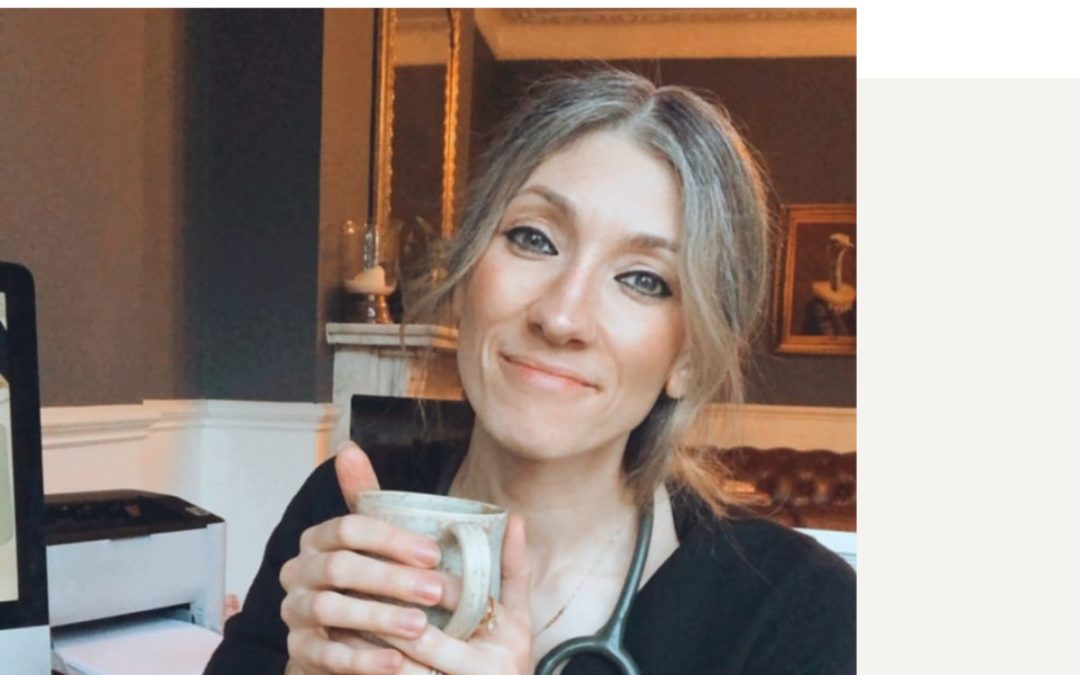Dr Lafina Diamandis | GP & Founder of Deia Health
Dr Lafina, a GP specialising in Lifestyle Medicine and founder of Deia Health. 80% of chronic diseases are caused by lifestyle, so solely using medicine to treat symptoms makes little sense – as I learned first-hand. Medicines have their role of course but Dr Lafina argues that we need to focus on the root cause in order to stop it and prevent it from recurring. She uses lifestyle interventions to treat, reverse and prevent a whole host of diseases.
Tell us about your specialism?
Lifestyle medicine is an approach that uses evidence-based lifestyle interventions (or treatments) as the main way of treating disease. This includes using whole-food, plant-predominant eating patterns, regular physical activity, restorative sleep, stress management, and positive social connections to prevent, treat or even reverse lifestyle diseases ranging from anxiety and depression to diabetes and heart disease.
How can it help people suffering with stress, anxiety or burnout?
It allows us to take a holistic view of health and understand how stress and anxiety may have evolved within the context of your life. We consider the impact of factors such as sleep quality, relationships, genetics, sunlight, stress management, nutrition and much much more. By looking at your lifestyle in detail, we can identify the root cause of problems, and use lifestyle changes to treat symptoms and prevent them from recurring. Even if we can’t immediately get rid of the cause (like that boss at work that stresses you out!) there are still lot’s of things we can do to manage your stress response and regulate our hormones. For example, we can use sleep, diet and connection with nature to regulate your internal stress response and help you take back control.
What’s your experience with stress, anxiety and burnout?
After treating hundreds of patients with these conditions I have definitely noticed some common themes.
Firstly, people underplay the amount of stress or magnitude of the life events that they go through. Suppressing emotions and enduring high amounts of stress over long periods of time inevitably results in an ‘explosion’ at some point (physical or emotional) so it’s always best to seek help early, or as soon as you suspect that your mental health is at risk.
Secondly, stress, anxiety and burnout are not resolved overnight. Urgency and convenience culture have led us to expect ‘instant’ cures to illness and as a result, we can feel frustrated by health setbacks that impact our already overloaded schedules. If you are suffering from any of these conditions be kind to yourself and listen to what your body is trying to tell you. Healing and recovery take time.
Lastly, don’t underestimate the impact that tiny tweaks to your lifestyle can have. It’s natural to feel skeptical about how making one small change per day might impact your overall health but believe me, small and consistent steps add up and can massively impact health and wellbeing.
Why do you think that so many people burn out?
Technology, hustle and success driven culture, obsession with external markers of success, lack of downtime and boundaries. And those affected are getting younger and younger, technology and social media seem to be a big driver for this and as a result our brains are getting zero downtime. I’m extremely concerned about how this will affect the brain function of younger people in future.
What can people expect if they choose to work with someone in your field?
We’ll do a thorough history and lifestyle assessment to see how different factors may be contributing to your symptoms and look at possible interventions. Being a GP I use a range of clinically validated tools to assess you and measure progress. You’ll walk away with a holistic health plan, including prescriptions inspired by nature! We then meet to monitor your progress and make tweaks to the plan. How quickly you see results really depends on what you are addressing, it could be anything between 4 weeks to 3 months. I think to be able to see any real changes you need to commit to working on a problem for at least 4-6 weeks.
Do you have any tips that people can try on their own?
Keeping a symptom diary can be a helpful way of identifying lifestyle factors that improve or worsen your stress and anxiety. You can organise this how you wish, for example, scoring your symptom severity from 1 to 10 and seeing how this relates to one or a number of lifestyle habits such as sleep, exercise or meditation..
If you could only give one piece of advice to reduce stress & avoid burnout, what would it be?
Learn about your stress cycle and how to complete it in a way that works for you. Do this every single day, regardless of whether you feel stressed or not!.
If you’re feeling the effects of stress and burnout and would like some support – whether that’s for you, your team or your business – drop me an email or book a free call, no strings attached.
I’d love to help you with tailormade 1:1 Anti Burnout Business Coaching or Mental Wellbeing Workshops or talks.

